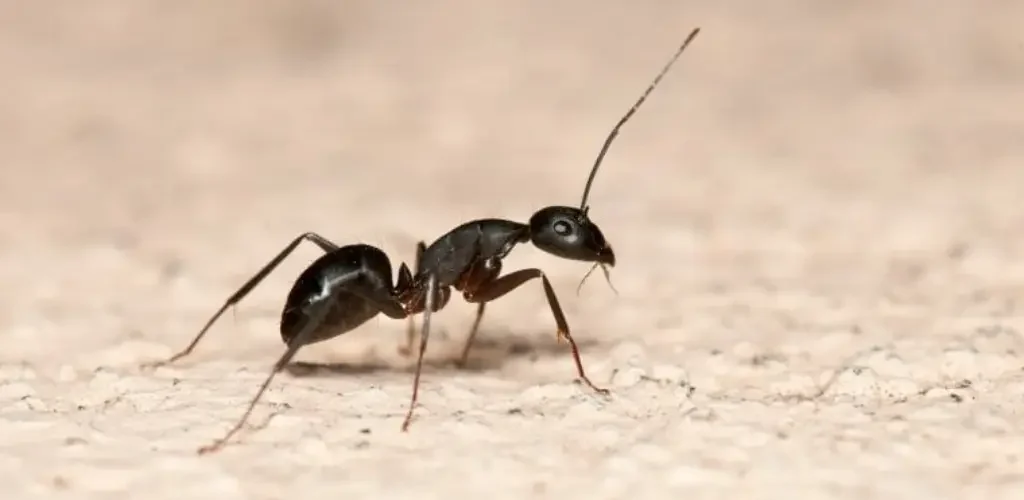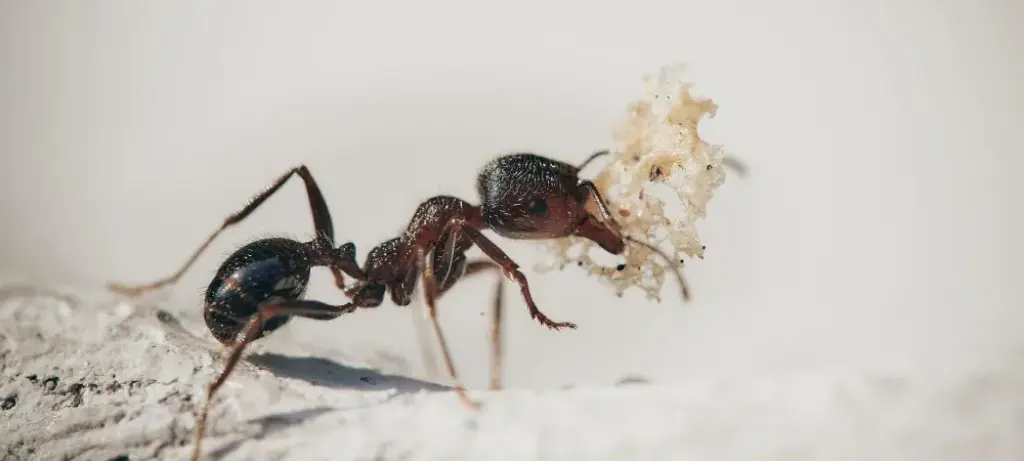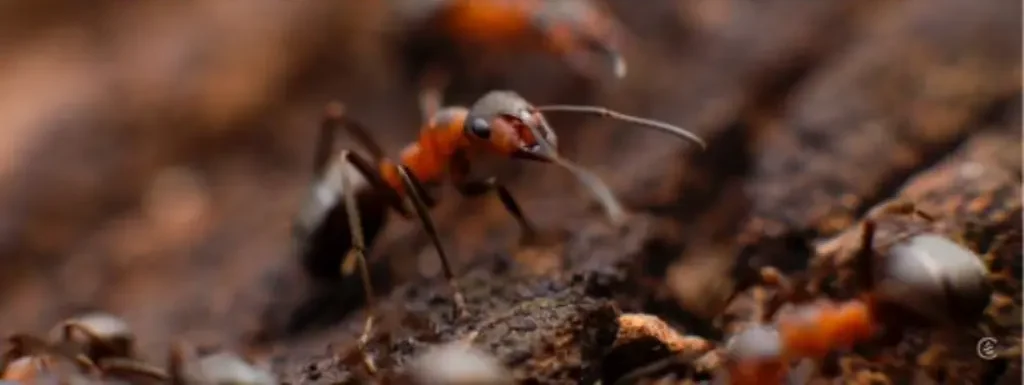How to get rid of ants

Getting rid of ants can be a frustrating task, but with the right strategies, you can effectively eliminate them from your home and prevent them from returning. Here’s a step-by-step guide on how to get rid of ants:
Identify the Type of Ants

Different ant species may require different approaches. Some common types include carpenter ants, sugar ants, and fire ants. Identifying the type of ant can help you choose the most effective method of control, as carpenter ants, for instance, can damage wood structures, while sugar ants are primarily attracted to food.
Find and Eliminate Ant Trails
Ants leave scent trails to communicate with their colony, leading others to food sources. To eliminate ants effectively, locate these trails and clean them thoroughly:
- Use a vinegar-water solution (equal parts vinegar and water) or soapy water to clean surfaces where ants are seen. This disrupts their scent trail and prevents more ants from following the path.
- Pay special attention to areas near food or garbage, as ants are typically attracted to these spots.
Seal Entry Points
Ants can enter your home through tiny cracks and openings. To stop them:
 Balance of Nature
Balance of Nature
- Seal any cracks or gaps around windows, doors, and foundations using caulk or weather stripping.
- Inspect and seal utility entry points, like those for cables, pipes, and vents.
Remove Food Sources
Ants are drawn to food, especially sweet and greasy items. Reducing their access to food will help control the infestation:
- Store food in airtight containers: Sugar, flour, and other pantry items should be sealed tightly.
- Clean up crumbs and spills immediately, especially in the kitchen and dining areas.
- Take out the trash regularly and ensure garbage cans have tightly fitting lids.
- Avoid leaving pet food out for extended periods.
Use Natural Repellents
There are several natural remedies that can help repel ants without the need for harsh chemicals:
- Vinegar: Spray a vinegar-water mixture on countertops, window sills, and other areas where ants are found.
- Lemon juice: The acidity of lemon juice can mask ant scent trails. Apply lemon juice near entry points or areas where ants are active.
- Cinnamon or cayenne pepper: Sprinkle these spices near ant entry points. Ants dislike the strong scent, which can deter them.
- Essential oils: Peppermint, tea tree, or eucalyptus oils can be effective ant repellents. Mix a few drops with water and spray in areas where ants are found.
Set Ant Bait
Using ant bait is one of the most effective ways to eliminate an entire colony:
- Ant baits contain a slow-acting poison that ants carry back to their nest, eventually killing the entire colony. Place the bait near areas where you see ant activity.
- Common types of ant baits include gel, granules, or liquid drops. Make sure not to disturb the ants too much after placing the bait, as you want them to take it back to the nest.
Try Commercial Ant Killers
If natural methods don’t work, you can try commercial ant control products:
 Nature Life: Embracing the Beauty and Serenity of the Natural World
Nature Life: Embracing the Beauty and Serenity of the Natural World
- Ant sprays: Use these directly on visible ants or around entry points. However, they often provide only temporary relief.
- Insecticide dust: Sprinkled around entry points or cracks, this can kill ants on contact.
- Ant traps: Commercial ant traps are pre-baited with poison and are designed to attract and eliminate ants effectively.
Target the Colony
If you can find the nest, directly targeting the ant colony can be highly effective:
- For outdoor nests, pour boiling water or a mixture of borax and sugar water into the nest to kill the ants inside.
- Carpenter ants often nest in wood structures. If you suspect a carpenter ant infestation, you may need to contact a professional to deal with the nest.
Maintain Regular Prevention
Once you’ve eliminated the ants, take preventive measures to ensure they don’t come back:
- Keep your home clean: Regularly sweep and mop floors, wipe down surfaces, and clean food spills.
- Check for new entry points: Continue to inspect your home for any new cracks or openings that ants could use.
- Use natural deterrents regularly: Spraying vinegar or essential oils in areas prone to ants can help keep them away.
Call a Professional Exterminator
If the infestation is large or if DIY methods don’t work, calling a professional pest control service might be necessary. Professionals can locate the nest, use stronger insecticides, and offer long-term prevention strategies to ensure the ants don’t return.
Those steps should provide a comprehensive approach to getting rid of ants


Regular Monitoring and Prevention
Once the immediate infestation is under control, regular monitoring and preventive measures are crucial to avoid future invasions. Maintaining a clean home, sealing potential entry points, and regularly using natural repellents like vinegar or essential oils in susceptible areas can significantly reduce the chances of ants returning.
 Tornadoes: Nature’s Most Violent Storms
Tornadoes: Nature’s Most Violent Storms
When to Call a Professional
If your efforts to control the infestation fail or if you discover a large colony (especially carpenter ants, which can damage wooden structures), it might be time to call in a professional exterminator. Professionals have access to stronger treatments and the expertise to locate and eliminate hidden nests.






